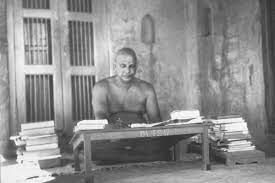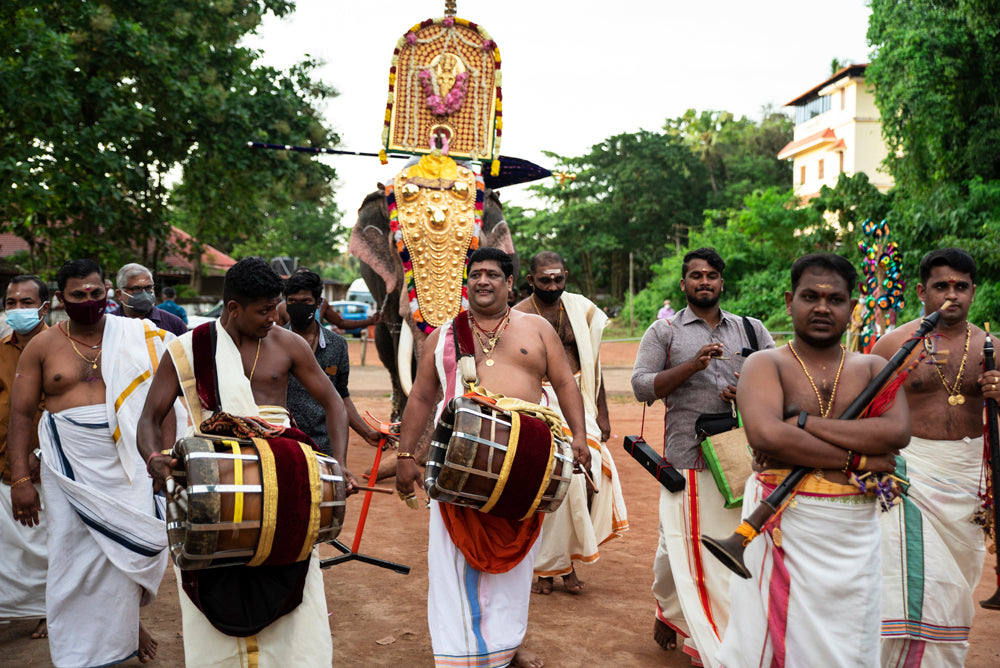
The life and teachings of Swami Sivananda
Swami Sivananda Saraswati was a prominent spiritual teacher and yoga master from India. He was born on September 8, 1887, in Pattamadai, a small village in Tamil Nadu, India. He was the fourth child of his parents, and his given name was Kuppuswami. In this blog, we will delve into the life and teachings of Swami Sivananda, one of the most influential spiritual leaders of the 20th century.

Early Life
Swami Sivananda was born into a pious Hindu family, and from a young age, he showed a keen interest in spiritual matters. He studied Sanskrit, the Vedas, and other sacred texts, and he was particularly drawn to the teachings of Vedanta, which emphasize the unity of all beings.
After completing his studies, Swami Sivananda worked as a doctor in Malaya for several years. During this time, he came into contact with many spiritual teachers and began to deepen his understanding of yoga and Vedanta. In 1924, he renounced his worldly life and traveled to Rishikesh, where he studied with Swami Vishwananda Saraswati, a renowned yoga master.
Teachings and Philosophy
Swami Sivananda was a prolific writer and spiritual teacher, and he founded the Divine Life Society in 1936 to spread his teachings. He wrote more than 200 books on yoga, Vedanta, and spirituality, which have been translated into many languages and have influenced millions of people around the world.
Swami Sivananda's teachings emphasized the importance of living a simple, pure, and spiritual life. He taught that the goal of human life is to attain liberation from the cycle of birth and death, and that this can be achieved through the practice of yoga and meditation.
Swami Sivananda's teachings were based on the principles of karma yoga, bhakti yoga, jnana yoga, and raja yoga. He believed that these four paths of yoga could be practiced together, and that they could help individuals to develop their physical, mental, and spiritual faculties.
Karma Yoga
Swami Sivananda believed that karma yoga, or the path of action, was an important aspect of spiritual practice. Karma yoga involves performing selfless service without expecting anything in return. According to Swami Sivananda, selfless service was a powerful means of spiritual growth and could help individuals to overcome their ego and cultivate a spirit of compassion and love for all beings.
Bhakti Yoga
Swami Sivananda also emphasized the importance of bhakti yoga, or the path of devotion. Bhakti yoga involves developing a deep love and devotion for God, and using that love to purify the mind and heart. According to Swami Sivananda, bhakti yoga could help individuals to develop a strong connection with the divine and to experience the ultimate reality.
Jnana Yoga
Swami Sivananda also taught the importance of jnana yoga, or the path of knowledge. Jnana yoga involves developing a deep understanding of the nature of the self and the universe. According to Swami Sivananda, jnana yoga could help individuals to realize the ultimate reality and to achieve liberation from the cycle of birth and death.
Raja Yoga
Finally, Swami Sivananda taught the principles of raja yoga, or the path of meditation. Raja yoga involves developing the ability to focus the mind and to enter into deep states of meditation. According to Swami Sivananda, raja yoga could help individuals to attain inner peace, clarity of mind, and spiritual awakening.
Legacy
Swami Sivananda's teachings have had a profound impact on the spiritual landscape of India and the world. His books and teachings have inspired millions of people to take up the practice of yoga and to live a more spiritual life.
Swami Sivananda's disciples, including Swami Vishnu-Sivananda, Swami Chidananda Saraswati, and Swami Satyananda Saraswati, went on to become prominent spiritual leaders in their own right and have continued to spread his teachings.

Today, the Divine Life Society continues to spread Swami Sivananda's teachings and to promote the practice of yoga and spirituality. The society has established many ashrams and centers around the world, where people can come together to practice yoga, meditation, and other spiritual disciplines.
Conclusion
Swami Sivananda was a spiritual giant whose teachings continue to inspire millions of people around the world. His teachings emphasized the importance of living a simple, pure, and spiritual life, and he believed that the practice of yoga and meditation could help individuals to achieve their highest potential.
Swami Sivananda's legacy continues to thrive through the work of his disciples and the Divine Life Society, which remains a beacon of hope and inspiration for spiritual seekers around the world.
Author
Darshita Nautiyal
(The images used in this podcast are not owned by Anime Devta, they are just to help the readers)

